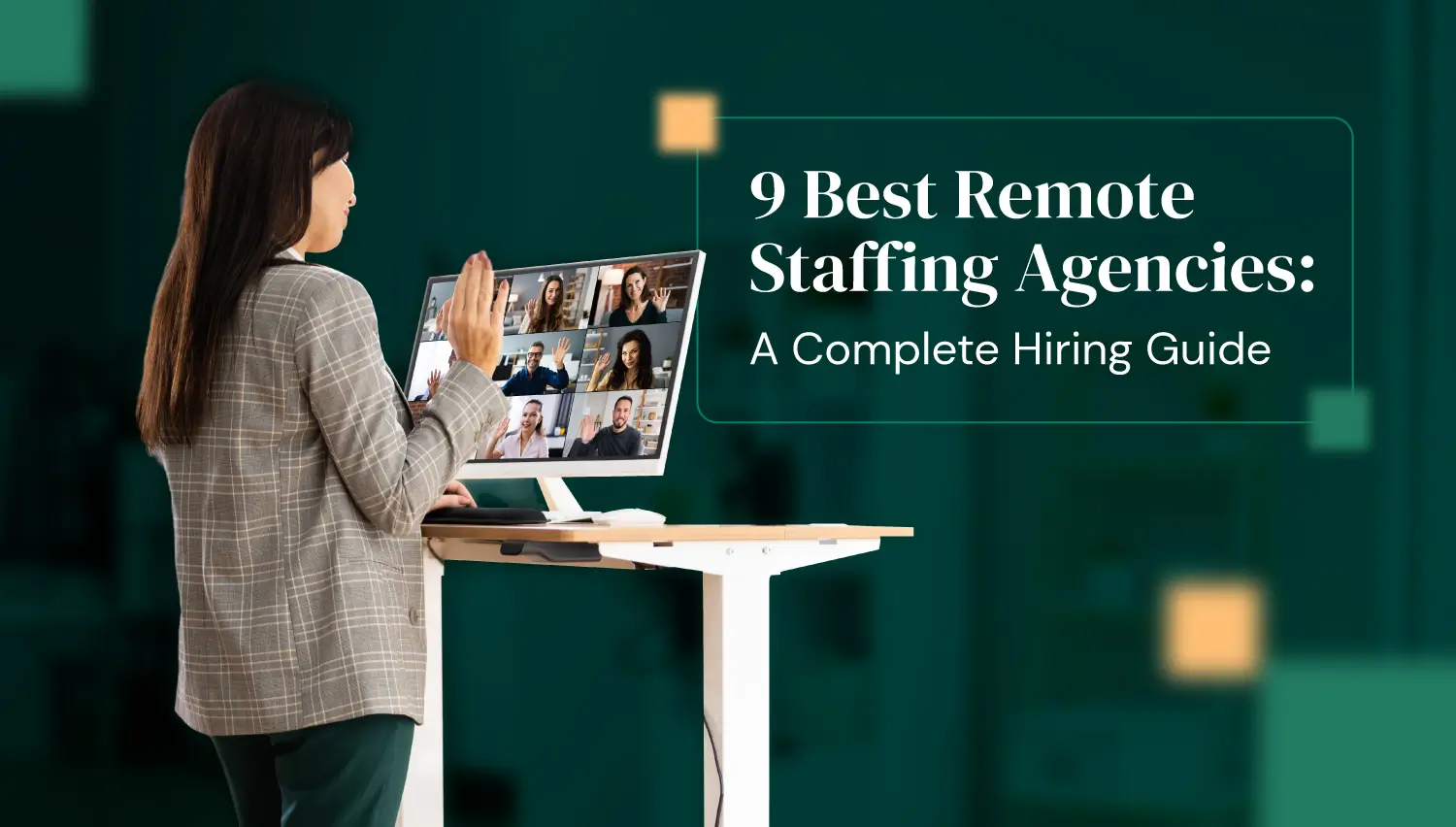But knowing how to spot both green and red flags can make the job so much easier.
Now, we already shared what makes great candidates stand out from the pack in a previous post. So this time around, we shifted our focus to interview red flags and asked two acquisition specialists — Sweet Yabut and Jay Mariano — about their ultimate list of no-nos.
Let’s dive right in:
1. They aren’t responsive
“Watch out for a candidate's availability in communication and scheduling interviews. Their level of responsiveness is crucial during the hiring process as it reflects their commitment to securing the role,” says Jay.
If a candidate takes their sweet time replying to you, that may be a sign they aren’t interested in your company. Someone who’s really serious about finding a job will respond ASAP, whether it’s acknowledging the test you sent out, sharing their resume, or setting an interview date.
Good candidates are also transparent in the face of unexpected delays and other hiccups. Red flag candidates, on the other hand, are likely to ghost you.
2. They don’t follow instructions

A universal skill every virtual assistant should have is strong attention to detail.
A VA may have the technical stuff down pat. But if they don’t follow basic instructions like sending their writing test in PDF format instead of a Google Docs link or using a specific font and color scheme for a sample website layout, you might not be able to depend on them 100%.
“Always check whether an applicant follows instructions. If they fail to do so, it indicates that they have potential issues with reliability,” points out Sweet.
PRO TIP
One way to suss out an applicant’s ability to pay attention to details is by adding specific instructions in your job ad. For example, you can ask them to include the word “pickle” in the subject line of their application.
3. They hop from one job to the next
Pay close attention to a candidate’s work history. How many jobs have they held in the last two years? How long do they typically stay at a company?
If they’ve been consistently job-hopping, talent acquisition specialists like Sweet consider that one of the biggest hiring red flags.
“When a candidate frequently changes jobs, it can indicate they have some long-term commitment issues. It also reveals what sort of character they have.”
This doesn’t mean you should ignore applicants who only stay at a company for an average of six months. Get to the root cause behind their job switching. Maybe it’s not because they’re always aiming to increase their salary. The culprit can be the places they worked at. These companies might not have bothered to keep them engaged or give them a reason to stay.
Related: How to retain top remote talent
4. They have long gaps in between jobs

Besides instances of job hopping, another item to watch for while you’re reviewing resumes is employment gaps. According to Jay:
“Intermittent work history patterns can raise concerns about the candidate’s reliability and potential attrition risk.”
Be sure to get the candidate’s explanation. They might have just wanted to take a break or needed to sort out something in their personal life.
If the applicant is open to discussing what happened, give them credit for their transparency. That’s a valuable trait you want in your employees. However, if they skirt around the topic, that’s when you have to do more digging. Background and reference checks will reveal the truth.
💡 DID YOU KNOW?
Somewhere conducts thorough background and reference checks for every candidate. This is part of our rigorous screening process.
5. They’re late to the interview
First impressions matter. If the person you’re supposed to interview comes in late — or worse, is a no-show — they won’t exactly inspire a lot of confidence as a potential team member. You set aside your valuable time to meet them. The least they can do is give you a heads-up should they not make it as scheduled.
6. They say things that raise eyebrows
“During interviews, recruiters may observe unethical approaches from candidates when answering situational-based questions,” says Jay.
Sometimes, prospects can shock you with their responses. They might just tell you outright that they’re willing to compromise their values to succeed in their role. Say, for example, leaving fake reviews on their company’s products, manipulating data, and giving a direct report a high rating despite their less-than-stellar performance.
Do you really want these people working for you? Big nope.
7. They can’t give concrete answers
Listen to what your interviewee says — or doesn’t say — when you ask probing questions like:
- What was the biggest challenge you faced in your previous role? What measures did you take to overcome it?
- What’s your proudest career achievement?
- Have you ever had a disagreement with a co-worker? How did you resolve it?
- Can you share your approach to handling irate customers?
- How do you write about a topic you don’t have any experience with?
Ask a mix of role-specific and behavioral questions to gauge their suitability for the role. If the candidate doesn’t give detailed answers, it’s either that they beefed up their resume or lack communication skills.
Related: Interview questions to ask remote candidates
8. They don’t ask questions

Interviews are a two-way street. The goal is for both parties involved to find out whether they’re the right fit for each other. Ideally, it shouldn’t only be the interviewer asking questions.
Candidates should use their interview as an opportunity to learn more about the role, what your company does, and what the work culture is like. If they aren’t interested, they won’t see the point in asking anything.
You can tell if an applicant is invested when they ask questions like:
- What’s your goal for the business?
- What’s the average workday like for this position?
- Will training be provided?
- What are the people like?
9. They don’t know much about your company
Next on our list of red flags in interviews is candidates who come into the interview with little-to-no knowledge of your business.
While you can’t expect them to memorize your mission-vision statement, they should at least have a few ideas about what you do and what the role entails. The reason isn’t to impress you — it’s to show that they’re earnest job seekers looking for a company that aligns with their goals, values, and interests.
Since people spend a significant part of their time at work, it’s only natural to be curious about what they might be in for. If an applicant doesn’t do their homework, then they might have other companies in mind.
10. Their mind is elsewhere
When a candidate requests you to ask your question again, it’s fine. But if you find yourself repeating several questions, it’s safe to assume they’re either nervous or distracted. You can tell it’s the latter, though, when they make non-committal responses and appear bored.
11. They put too much focus on benefits
There’s nothing wrong with asking about salary and benefits. All of us do need to make a living. But if you observe that the person you’re interviewing keeps circling back to compensation — or is upfront with their demands — that’s one of the top interview red flags right there. It doesn’t leave a good impression. Salary talk is usually reserved for the later part of the interview.
Don’t ignore these hiring red flags
Not all of the interview red flags we mentioned above may be deal-breakers, but being familiar with them can save a lot of headache down the line.
If you need help weeding the good candidates from the bad, that’s what our team at Somewhere is for. We filter through dozens of applications to find the professionals most qualified for the job. Just tell us about the role you want to fill, pick who to interview from our list of vetted applicants, and hire your new team member.














